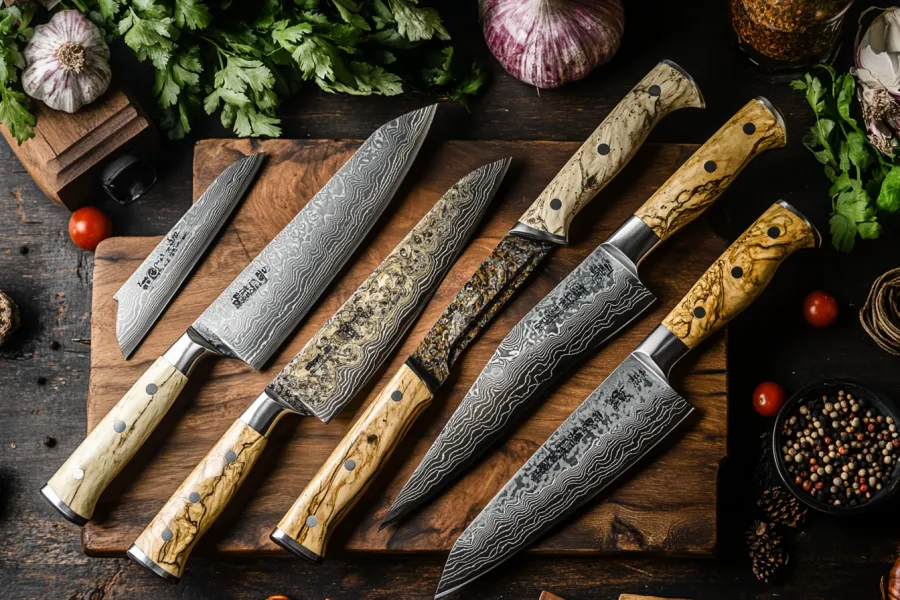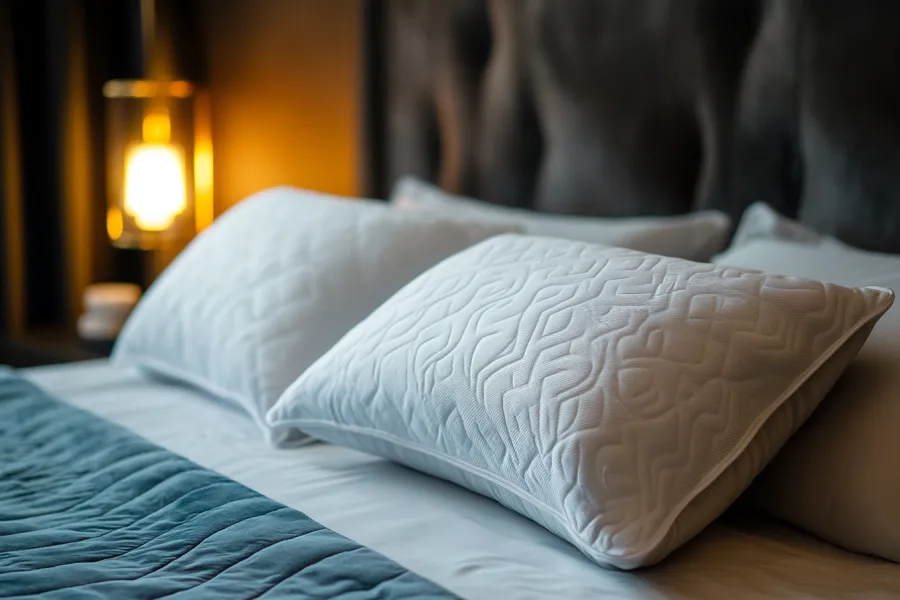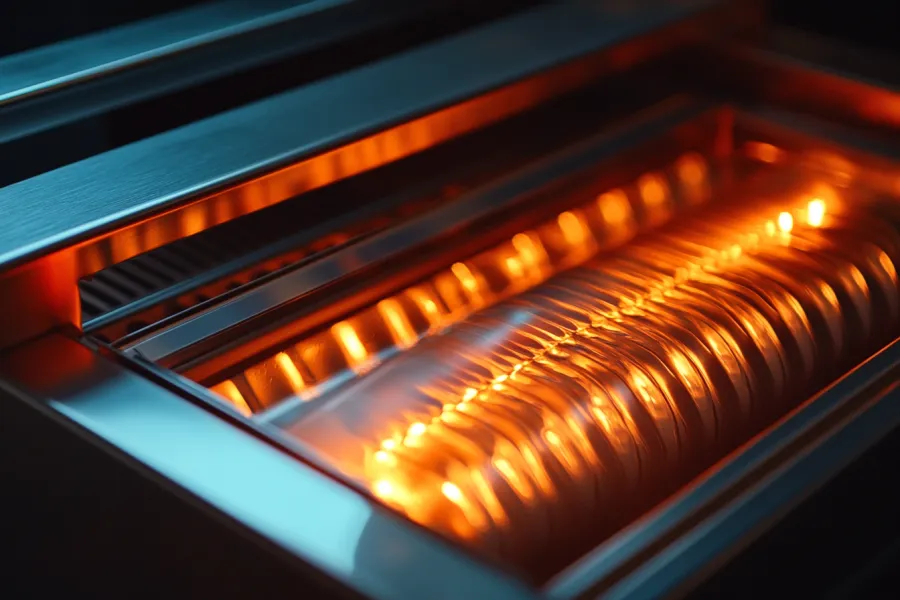Cutting corners? Not with these top chef knives! Find your perfect kitchen companion.
Our Top Picks
|
1. Jump to Review Dalstrong Chef Knife |
|
2. Jump to Review imarku Chef Knife |
|
3. Jump to Review HexClad Chef Knife |
|
4. Jump to Review HENCKELS Chef Knife |
|
5. Jump to Review Wüsthof Chef Knife |
Let’s talk about one of the most important tools in any kitchen—the chef knife. It’s like the MVP of cooking, ready to handle anything from dicing onions to slicing through thick cuts of meat. But with so many options out there, finding the right one can feel a little overwhelming. Don’t worry—we’ve narrowed it down to seven top picks that balance sharpness, comfort, and durability. Whether you’re a seasoned cook or just getting started, these knives will make prepping meals easier and more enjoyable. Your chopping game is about to level up!
1
Dalstrong Chef Knife
If your kitchen tools need to perform and impress, this chef knife delivers on both fronts. Its 9CR18MOV steel blade doesn’t just promise sharpness—it holds its edge longer, even through tough ingredients. The hammered finish helps food slide off smoothly, making prep work less of a chore. But it’s not just about function—the celestial resin handle feels as good as it looks, offering a comfortable grip for marathon cooking sessions. This knife’s a real conversation piece, blending performance with style for chefs who want both.
Blade stays sharp through heavy use
Hammered finish keeps slicing smooth
Comfortable grip for extended prep work
Heft might not suit everyone
2
imarku Chef Knife
Think all chef knives are created equal? Think again! This Japanese chef knife is here to prove that precision and artistry can come together in one stunning tool. It’s great for day-to-day chopping, dicing, or slicing, and holds up well against moisture, so you won’t have to worry about rust creeping in. The pakkawood handle offers a steady, comfortable grip—ideal for long prep sessions without hand fatigue. From quick weeknight meals to gourmet creations, this chef knife handles it all
Stays resistant to rust and stains
Comfortable handle for better control
Great all-rounder for everyday cooking
Needs occasional honing to stay sharp
3
HexClad Chef Knife
Ever feel like fancy kitchen knives don’t live up to the hype? This ultrasharp chef knife cuts through that noise—literally. Its hybrid blade features a non-stick surface, so food slides right off without slowing you down. The hexagonal pattern isn’t just a pretty face; it reduces drag, making every slice feel smoother. This one’s made for home cooks who love tools that look good and work hard. Bonus: It’s dishwasher-safe, so cleanup is a breeze.
Hex design cuts down on drag
Non-stick surfaces prevent food buildup
Dishwasher safe for easy cleaning
Modern look may not suit everyone
4
HENCKELS Chef Knife
Sometimes, you just need a set of chef knives that gets the job done, no questions asked. This set is that old reliable tool—sharp, sturdy, and easy to handle. Its high-carbon steel blade holds up through all kinds of chopping, and the full-tang design gives it a nice, balanced feel. Whether you’re dicing onions or slicing through a roast, these knives are consistent every time. It’s a knife that’s been trusted for years, and it shows.
Built to last with high-carbon steel
Easy to handle for precise cuts
Trusted brand known for quality
Heavier weight might not suit all cooks
5
Wüsthof Chef Knife
Some knives are just tools—this one feels like an upgrade. These chef knives are known for their precision-forged, high-carbon steel blade that stays sharp through countless meals. It slices through everything from dense root vegetables to delicate herbs without missing a beat. The full-tang design gives it a perfectly balanced feel which makes long prep sessions easier on your hand and wrist. Hone your culinary skills with this expertly crafted knife, a testament to generations of tradition It’s a splurge, but if you want reliability and performance, it’s worth every penny.
Blade stays sharp through heavy use
Perfectly balanced for comfortable handling
High-quality build designed to last
A bit pricey for casual cooks
6
ASETY Chef Knife
This Japanese chef knife beautifully marries time-honored craftsmanship with cutting-edge performance. This beauty is made from premium Japanese steel, giving you a blade that’s not just razor-sharp but also built to tackle a range of ingredients—from the most delicate vegetables to hearty cuts of meat. You’ll appreciate its lightweight design, which makes it a joy to wield as you chop, slice, and dice your way through any recipe. And let’s not forget that stunning Damascus pattern; it’s not just for show! This intricate detail signifies the meticulous craftsmanship behind each knife.
High-quality Japanese steel for sharp performance
Lightweight design allows for easy handling
Stunning Damascus pattern adds visual appeal
Regular maintenance needed to keep sharpness
7
Brewin Chef Knives
If you’re building a serious kitchen toolkit, this set of chef knives covers all the bases. From precise paring to hearty chopping, each knife in the set is designed to tackle specific tasks without compromise. The high-carbon stainless steel blades stay sharp and resist rust which makes them durable and sharp for anything that you can throw at them. With ergonomic handles, these knives feel comfortable even during long prep sessions. This set isn’t just about variety—it’s about having the right tool for every dish, so cooking feels smooth and satisfying.
High-carbon steel holds a sharp edge
Variety of knives for every task
Ergonomic handles make long use easy
May feel like overkill for minimalists
FAQ
Q. How often should I sharpen my chef knife?
A. It depends on how often you use it and what you’re cutting. Heavy daily use may require sharpening every few months, but occasional cooks can get by with sharpening twice a year. Honing your knife regularly (before or after each use) can extend the time between sharpening by keeping the edge aligned. If your knife starts to drag through ingredients instead of slicing smoothly, it’s time to sharpen. A sharpening stone is ideal, but many knives also work well with pull-through sharpeners for a quick fix.
Q. What’s the difference between Western and Japanese chef knives?
A. Western knives, like German styles, are usually heavier with a thicker blade, designed to tackle tougher ingredients. They have a double-beveled edge, meaning they can be used comfortably by both right- and left-handed cooks. Japanese knives are lighter with a thinner, sharper blade, perfect for precision tasks like slicing fish or vegetables. However, Japanese knives are often more delicate and require more maintenance to prevent chipping. If you value precision and finesse, go Japanese. If you prefer an all-rounder with heft, a Western knife might be your best bet.
Q. Does the handle material really matter?
A. Yes! The handle affects both comfort and grip. Wooden handles offer a traditional, natural feel but may need extra care to avoid cracking or warping. Plastic handles are easy to maintain and lightweight, though they might feel less premium. Composite materials, like pakkawood, give you the best of both worlds—durability with a more polished look. If you’ll be prepping for long periods, look for a knife with an ergonomic handle to avoid hand fatigue.
Q. Are forged blades better than stamped blades?
A. Forged blades are made from a single piece of steel, making them stronger and more durable. They tend to be heavier, which some cooks prefer for control. Stamped blades, cut from sheets of metal, are thinner and lighter—great for people who prefer agility over heft. Both have their place in the kitchen, but if you need a knife to withstand heavy, regular use, a forged blade will likely last longer. Stamped blades are often more budget-friendly and easier to maneuver for smaller prep tasks.
Q. What’s the best way to store a chef knife?
A. Proper storage isn’t just about convenience—it keeps your knives sharp and safe. Magnetic strips are a great option if you want easy access and like to display your knives. Knife blocks work well too, but make sure to insert the blades carefully to avoid dulling the edges. Knife guards are perfect if you store them in a drawer, preventing the blades from getting nicked or damaged. Whichever method you choose, always dry your knife completely before storing it to prevent rust or corrosion.
Article Contributors
Israel Hayom Shopping Team
Israel Hayom Shopping team provides authoritative advice and reviews, distinct from the editorial team, to inform your decisions. To guarantee the correctness of product sizes, availability, and prices, AI tools are utilized in the process.













